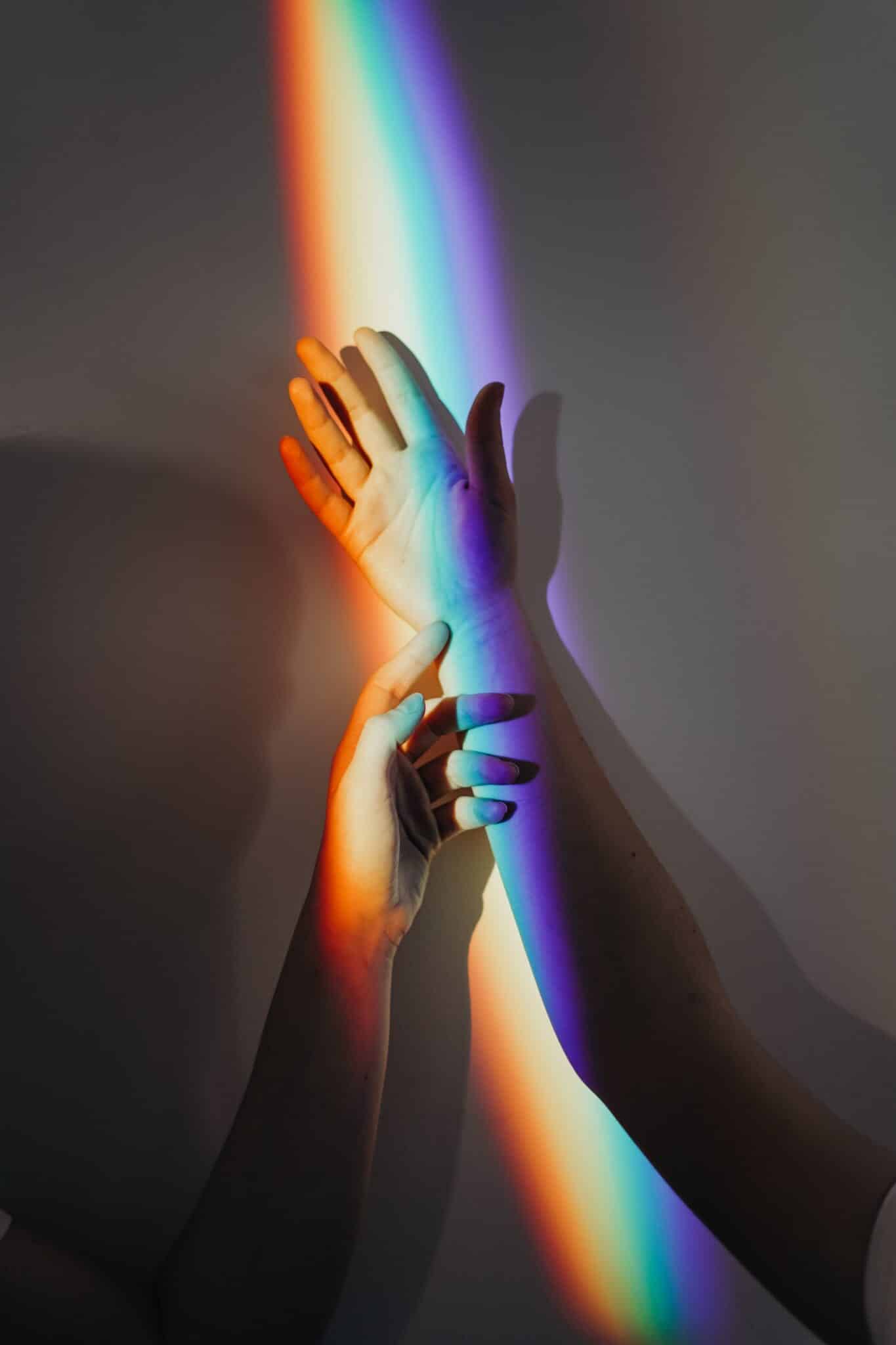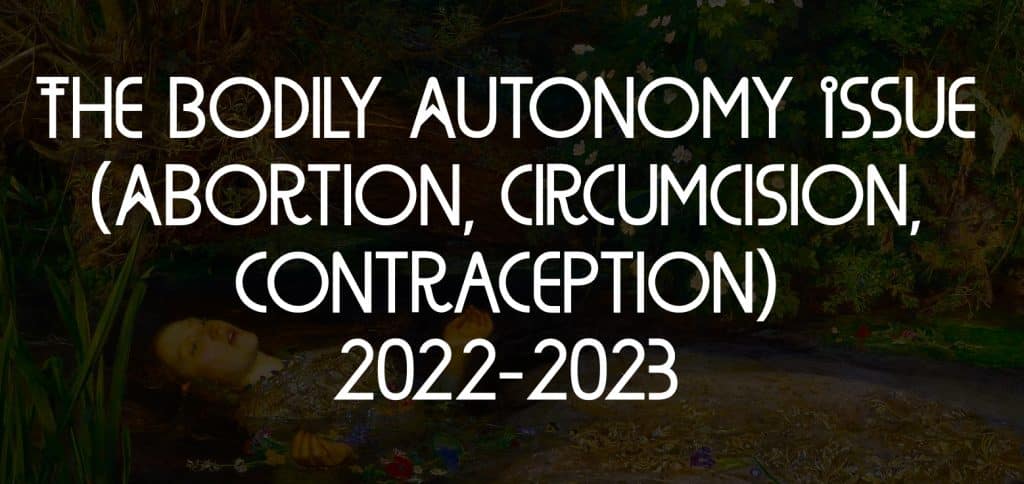Our Marriage Began in an Epidemic: Autoethnography of a Diagnosis
Author’s Memo
This piece examines the complex series of events that surrounded my marriage to D in 2019. Keeping an autoethnographic stance throughout, I begin with our wedding to contextualize both the kind of love we have and that the question of our diagnosis with HIV was made more important for having flanked our wedding with questions of illness, bodily autonomy, and love.
I use my own experience to tell a story about love, acceptance, and connection which makes it an autoethnographic narrative read for anyone experiencing the same thing. The larger point of the piece is to highlight how D reacted to my diagnosis with love and compassion, even an understanding that my illness was actually ours, tying my body to his life, making that very question of individual sovereignty moot. The point is that he didn’t succumb to stigma, but rather acted with love, which has been the tone of our marriage since. The cultural issues addressed are HIV stigma, illness, the entanglement of bodies with social relationships.

By Secret Garden for Pexels
Our Marriage Began in an Epidemic: Autoethnography of a Diagnosis
I awoke unnecessarily early the day after D and I got married in December 2019, bleary-eyed but still overjoyed. As usual, D was sleeping beside me in the silence of the morning while I pushed myself out of bed. I felt exhausted after all the events of the past few days that brought our nearest and dearest closer. We welcomed friends and family from around the Americas to Mexico City for our DIY wedding. The plan for the day was to gather with those who hadn’t yet left in our apartment to consume the left-over food and drink. I was feeling excited and tired and daunted by all that was still left to do.
From the dining room window, I peered into the concrete space at the back of our apartment building where we hosted our wedding in Mexico City. The perfection of night before had been replaced by unarranged furniture, bottles, used plates, cigarette butts, and dirt. There was much work left to take apart our DIY wedding. Only a few months before it was a dilapidated space filled with the concrete remnants of a home that was destroyed at some point. Once we cleaned its rubble and dirt, the space revealed a colorful, multi-textured palette of tiles and walls that served as the perfect intagrammable backdrop for our party.
D entered my life as a Grindr hook-up only 10 months before we got married. “Aren’t you cute,” I cooed. He smiled a deceiving, coy smile. A I was immediately endeared to him. He later confessed to me that the moment irked him. He wanted to be sexy, not cute.
Things got intimate quickly. To an eavesdropper, our speedy intimacy might have been full of red flags. Such uninhibited openness, to many, signals desperation and insecurity. But feelings of intimacy either always came to me fast or barely ever. We spoke of sex, desires, and our current romances. D told me he currently had a few casual lovers. My chest tightened with the fear of doomed competition for his affections. Little did I know that he had already devised a strategy to earn my affections. As it turned out, neither of us had any competitors for each other’s hearts.
Falling in love was easy. D became mi gordito. There was no honeymoon phase, no butterflies, or unsure footing. Life was steady. Our routine was populated with sleep and walks around Mexico City, small dinners, days in bed, seeing friends, sex. Our time together was occasionally interrupted by our work duties. I was finishing up a doctoral dissertation (which was the reason for my sojourn in Mexico City: to live cheaply away from Canadian weather while writing up) and acting auditions and gigs were pulling him away. We were feeling comfortably bored together, which was never boring. Being bored together never felt like we weren’t enough for each other.
Within a month, I told R I’d marry him. I texted the same to my folks. I felt the surety and rightness of the decision I had made to myself every time we gathered with friends. D would take my hand under a table during casual conversation. Throw his arms around my shoulders while standing on street corners. Mexico City is a city of lovers who embrace longingly anywhere.
At first, marriage was a way to maintain our relationship over borders once I returned to Canada. But it grew into a more romantic affair as our friends and family spoke to us with delight and surprise.
So, we wanted our wedding to be a gathering of friends and not strangers. In the days before the wedding, we entertained our invitees with an itinerary of attractions: the pyramids of Teotihuacan one day, a walking tour of the Zocalo and colonial Mexico City another. D and I planned nightly activities featuring aspects of Mexican cuisine and nightlife. We made sure our friends and family became friends and family. It was the first time our nearest and dearest gathered. We felt like something bigger than us was forming.

By Cottonbro Studio for Pexels
As D and I swirled around our guests, our spirits were engulfed in the collective feelings of joy and life that made our wedding ours. I couldn’t have asked for a better wedding. Amidst our cross-border conversations about taco vendors, outdoor furniture rentals, lighting and music, D and I fought over the details. Yet, he taught me again and again to have faith in his judgement. We stripped our wedding of pomp and ritual. We planned a party without interruption except for a short ceremony officiated by R, a close friend and former lover. The ceremony would give our party the feeling of loving communitas, the emotional life that makes weddings different than a regular party. We hid nothing behind ritual. Whispers of its honesty circulated. Our motley crew of beloved friends and family stunned our party with elegance and love.
The culmination of joy, fatigue and drunkenness made me a mass of blubbering emotion in ways I had never expected. My sour opinion of weddings melted into feelings of love that made my body swelter. I had never felt anything like it before. And to think, had D been anyone else, someone with a different moral compass, our day might never have come to pass. He could have left me that day in July, after they diagnosed me with HIV positive. Rather, my illness became ours, surrounding our marriage with a series of body politics that rendered my bodily sovereignty a joint project of acceptance and survival.
Months earlier, in July 2019, D wrote to me over WhatsApp, “Babe, let’s go for an HIV test.”
“Sure,” I responded, “Good idea.” Being of the generation of gay men who came of age in the 1990s, routine HIV testing began as part our sexual lives. I was getting them nearly twice yearly.
D made an appointment for 6pm the next day at México Vivo, a small sexual health organization with rapid HIV testing. To get there from our shared apartment, we walked a path upwards, through some residential streets and across viaducto, the long highway a long thoroughfare cutting through the city. It was a familiar route. It included the path that often brought us together, the path we’d take traveling between the apartment I once shared with R and how current apartment. We took this path the day after we met, the morning after D slept over. I recall D was agog to show me the greenery surrounding his neighborhood. I got the sense that he was proud of his life, and he wanted me to share that pride.
We arrived at México Vivo, D buzzing the intercom. “Hola. Tenemos unas citas,” D said into the box affixed to the concrete wall. With a click of the lock, I pulled open a heavy glass door and we stepped into their small, sunny lobby slash waiting room. We were early. Browsing the safer sex literature table, D surreptitiously stuffed free condoms and lube packets into his pockets like a thief.
Then, we heard the sound of a door opening from the examination rooms around the corner. A man called for D to follow him. It took only a few minutes. D reemerged passing along to me the news of his negative result. Obviously, we hadn’t expected it any other way although we also know, as gay men dutiful public health messaging, that the risk is always present. I stood for my turn.
D, the man and I all sit down in the pleather chairs. The man explains the test procedure and what the stick shows in the event of a negative or positive result. D is there to act as a translator if my inchoate Spanish fails me. The man, who for some reason we learn is from Colombia, contorts my right hand so my knuckles are on the table. With a small alcohol wipe, he disinfects my index finger and pokes the tip bluntly to create a small laceration. Starting at my palm he pushes up the length of my finger to coerce a drop of blood into a small, basting like tube.
I have been in this situation before, in small offices that in the blurriness of my memory all look that same while I await the split-second results of a rapid test. In these innumerable moments, my body is always rife with anxious anticipation. This time is no different.
A few minutes later, the man asked D to leave the room. Despite my protests, he insisted on delivering the results in private. I relented because I too believe that it’s an important policy to enforce no matter what. Although I know enough Spanish to understand positivo and negative, the man he pushed for a translator from among their staff. As we wait, I anxiously insisted that he could tell me. But he refuses to say my results in Spanish.
A young man from the second-floor offices entered. I didn’t require a translator to understand the results: positivo; I involuntarily let out a chuckle, like how a soda can releases carbon dioxide when opened. I have to be in such rooms anxiously awaiting the results of an HIV test never again; I no longer have to fear sex and my own desires. Most importantly, it was the release of the fear of HIV I have inherited from society.
As a gay man who came of age in the 90s, I have lived much of my sexual life among images of illness and messages of social abandonment paraded in media. Among years of sexual health messaging around HIV targeting me and my community. Our lives permeated by the symbols and stories of illness and HIV. All of it bunched up into collective fear, like a ball of socks and tossed endlessly from person to person for us all to carry. In my life, this fear had always been abstract, as in tied to an idea, a measure of health, the possibility of death.
Only once before had my fear come close to being concrete. Before PrEP, before we knew that being undetectable eliminated the risk of transmission, a dear friend had gotten a letter from the local public health unit informing him that doctors diagnosed a recent sex partner as HIV positive. He immediately got tested. For a few days we, his chosen family, anxiously awaited the results, afraid that illness was nearby. Afraid our world would come apart. He was negative. None of us had to confront and overcome this vague, abstract fear of something we didn’t fully understand.
In that moment in the small office in Mexico City that fear instantaneously concretized, then left. But the fear that my breath carried out of my body was the fear of society, of stigma. I didn’t need to fear illness and death. Advancements in medication and treatment enable people with HIV to live long, full lives. Nor was I feeling scared of taking pills daily, seeing a doctor regularly, getting a test, or having to pay closer attention to my health. I was afraid of society. I feared how society’s obtuse moralities would impact D’s opinion of me.
Would he become less sure about our quick love? Or try to determine the moment when I was exposed to the virus with disgust and sexual puritanism? Would he blame me for having gotten the virus, thinking me damaged, weak, contaminated? Stigma colors HIV as a moral failing of the individual, a kind of punishment for falling out of step with some path of normative sexual life. Mostly, I was feeling scared that the collective fear D and I have inherited from different corners of the world would intervene into our intimacy.
I knew D to be sexually progressive. We had bonded over sex. We both understood desire as fundamental to life. And that great sex makes us feel as if we are soaring through our human potential, bringing people closer together when sex is freed from norms of monogamy and heteronormative reproduction. D and I shared the lofty ideals of pleasure as a route to inventing social possibilities and expanding our humanity. In negotiating our open relationship, we vowed never to punish or lambaste one another for sex. But people can change when stigmatized viruses come so close to them.
Meanwhile, the translator explained to me that sometimes the result is a false positive, so we did a second test just to be sure. Still positive. At this point, I insisted that D come back into the room. He must have been feeling worried at that point since my time in the room had lasted so much longer than his. I looked at him, tears welling in my eyes, with barely the worlds to tell him I have HIV.
afterwards, the man explained the next steps: I must visit Clinica Condesa – a large, multi-health complex in the trendy area of La Condesa – for a blood test and to arrange access to medications through a special government program that grants three months of free antiretrovirals to non-resident foreigners. I felt protected, grateful that I could begin treatment while in Mexico. D took note of the many next steps, which stopped me from becoming overwhelmed by process.
As we leave México Vivo, my limbs were heavy, and my stomach was sensitive from all the emotions. D was calm but had no reason to be. Plenty of other people would have run with feelings of betrayal and anger. Others might have hoisted upon me their own fear of death. Or their own fear of sex and pleasure. Stigma toward HIV is more often about sex than illness. It conjures imagines of deviant figures crossing boundaries between proper from improper sex. It is a punishment for doing something mainstream society deems despicable.
His support was never dogged by anger or fear. He resisted letting society intervene into our intimacy.
If our relationship was a dramatic performance, the audience would not blame D for leaving me for his own salvation. Stigmatized stereotypes make for good plot points. In dating culture, sexual health transgressions are broadly moralized as despicable, unforgivable betrayals, and represented as such in media. Mainstream society, to me, was a more fearsome actor in my intimate life than my HIV diagnosis. People carry too many “deal breakers.” as if love is tantamount to negotiating the price of a used car. But D extended his love to my new reality. His support was never dogged by anger or fear. He resisted letting society intervene into our intimacy.
Soon, we walked home talking about our new reality. How would my diagnosis affect our life together over borders? As a result, as a Canadian, I was now bound to the Canadian medical system for medications and check-ups every three months. How would it interrupt our transnational marriage? How could we make life together within these new limits?
Firstly, I told him that I refuse to let anyone make me feel ashamed. Secondly, I talked into his ear about how my diagnosis reflected nothing about my self-worth. It only meant that I had been exposed to a persistent virus. I felt kind of powerful as much as a struggled with self-pity. D and I swapped stories of friends with HIV to prevent me from absorbing society’s stigmas as feelings of shame and damaged self-worth. I drew strength from the stories of others. With this in our mind, we outlined my new conditions and committed to overcoming any new hurdles in our cross-border relationship. The love and devotion we felt upon my HIV diagnosis formed the bedrock of our marriage.
If D had felt any fear or anxiety in those moments, he never showed me. D held my hand with a surety that pegged our love to the earth. He was gifting me a love meant to give me balance as my body grew hotter with a mix of emotions. I felt somewhat unworthy of it, but I was so grateful. I was grateful that our conversations never looked backwards to find the provenance of my infection. It didn’t matter. Life together mattered. Our conversation was fuller than the word love itself. Our love had made it past the wilds of stigma, past the invisible faces of judgement wanting me to get punishment for my pleasures.
The love and devotion we felt upon my HIV diagnosis formed the bedrock of our marriage.
D’s love stabilized the complexity of my HIV diagnosis. D helped me understand my diagnosis more fully, and to relate my experience to those of others. Where I could have leaned toward feelings of shame and contamination, he helped me to be less afraid of the stigma by which people might now treat me. If anyone ever asks me what love feels like, my answer won’t be in the realm of some grandiose set of feelings that makes the world shake. The opposite. D’s love feels like it steadies the world, makes it more livable, calm, mundane, and wonderful.
Shortly after we arrived home, D and I fell onto our bed, physically exhausted from the emotional upheaval. My mind racing with the ramifications of my diagnosis. My body listless as it simultaneously absorbs a new reality while stretching into the past and drudging up what had been once only abstract fears. D lays at my side, griping my arm tightly. The moment is calm and silent although it could have gone other ways. Thankfully it didn’t.
Featured Image by Steve Johnson for Pexels I The AutoEthnographer
Roses by Secret Garden for Pexels
Colored hands by Cottonbro Studio for Pexels
MC is born, raised and residing in Canada. He's lived in a few cities around the world sometimes as a professional ethnographer, other times as a curious wanderer trying to escape the mundanity of routine life. He's a scholar, researcher and anthropology professor, whose parlaying his skills in academic writing into creative non-fiction.










